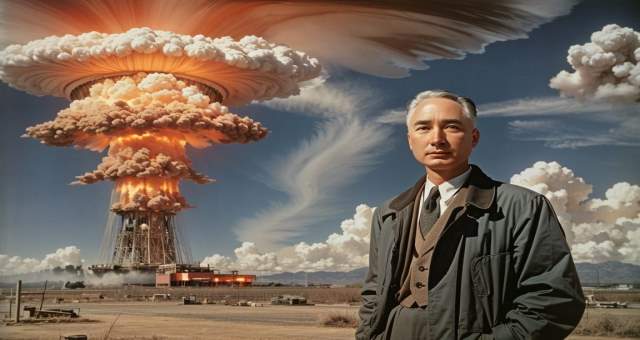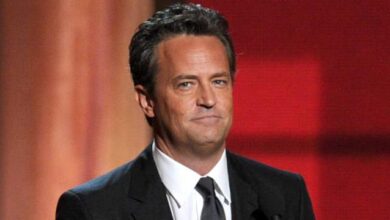Oppenheimer: The Father of the Atomic Bomb

Robert Oppenheimer is a name that means power and controversy. He is known as the “Father of the Atomic Bomb” and was at the centre of one of the biggest events in history. Here’s his life and legacy.
Oppenheimer Early Life and Education
Robert Oppenheimer was born on April 22, 1904 in New York City. His parents were rich and educated. His father Julius Oppenheimer was a textile importer and his mother Ella Friedman was a painter. Robert was into science from a very young age. He was a good student and graduated from Harvard in 1925. He then did his post graduate studies at University of Cambridge and University of Göttingen in Germany.
The Road to the Manhattan Project
Oppenheimer’s journey to the Manhattan Project was through academic excellence and deepening interest in theoretical physics. By 1930s he had become a leading physicist. His work on quantum mechanics and nuclear physics was getting attention from the scientific community.
In 1942 during World War II, the US government started the Manhattan Project. This was a secret project to develop an atomic bomb. Oppenheimer was made the scientific director of the project. His leadership and vision was key to its success.
The Manhattan Project
The Manhattan Project was one of the biggest and most secret projects in history. It brought together some of the best minds in science. The primary research and development was done in Los Alamos, New Mexico. Oppenheimer was responsible for building the laboratory and recruiting top scientists.
The project had many challenges. Scientific, logistical and pressure to beat the Germans. Despite all this the team made rapid progress. By July 1945 they had the first atomic bomb.
The Trinity Test
July 16, 1945 the first atomic bomb was tested in the New Mexico desert. This was a historic moment. The explosion was bigger than expected. It created a huge mushroom cloud and a blinding flash of light. Oppenheimer later said a line from the Bhagavad Gita, an ancient Hindu text: “Now I am become Death, the destroyer of worlds”
The Trinity Test was a success. It proved the bomb worked. It was ready for war.
Hiroshima and Nagasaki
Less than a month after the Trinity Test the US dropped atomic bombs on Hiroshima and Nagasaki in Japan. These were on August 6 and August 9, 1945. The destruction was unprecedented. Tens of thousands were killed instantly. Many more died later from radiation exposure.
These bombings ended World War II. But they also started a global debate on the ethics and consequences of such a weapon. Oppenheimer himself was conflicted. He was proud of the scientific achievement but deeply troubled by the human cost.
Post War
After the war Oppenheimer became a public figure. He was appointed chairman of the General Advisory Committee of the Atomic Energy Commission (AEC). He advocated for international control of nuclear weapons and against the hydrogen bomb.
Oppenheimer’s views on nuclear weapons put him at odds with powerful people. During the Red Scare of the 50s his past associations with communists were scrutinized. In 1954 he was called before a security hearing. The hearing was a big deal. Oppenheimer was accused of being a security risk. Despite many prominent scientists testifying on his behalf his clearance was revoked.
Legacy
Robert Oppenheimer’s legacy is mixed. He’s a brilliant scientist and a key player in the development of the atomic bomb. He’s also a man of moral ambiguity and controversy in his later years.
Oppenheimer’s work on the Manhattan Project changed the world. It started the nuclear age with all its implications for global politics, security and ethics. His life is still studied and debated.
Personal Life
Oppenheimer married Katherine “Kitty” Puening in 1940. Kitty was a botanist and former communist. They had two children, Peter and Katherine. Oppenheimer was a man of letters and the arts. He was a wide ranging and intellectually curious person.
Despite his professional success Oppenheimer’s personal life was often rocky. He had health problems including chronic tuberculosis. His politics and associations were always under scrutiny.
Read Also: Oppenheimer Showtimes
Later and Death
After his clearance was revoked Oppenheimer retreated from public life. He continued to work on theoretical physics and contributed to various projects. He also traveled and lectured.
Oppenheimer was diagnosed with throat cancer in 1965. He had surgery and radiation therapy but his health continued to decline. He died February 18, 1967 at 62.
Conclusion
Robert Oppenheimer’s life is brilliance, ambition and controversy. As the father of the atomic bomb he left his mark on history. His science and the Manhattan Project are unarguable. But his story is also a warning about the ethical dilemmas of science.
His legacy is a reminder of the power of science and the need to be responsible and moral in our pursuit of knowledge. He still inspires and challenges us as we navigate the world today.
FAQs
Q1: Why is Robert Oppenheimer the “Father of the Atomic Bomb”?
A1: Because he was the scientific director of the Manhattan Project which developed the first atomic bombs in World War II.
Q2: What was the Manhattan Project?
A2: A secret U.S. government project in World War II to develop atomic bombs. Brought together the best scientists and created the first nuclear weapons.
Q3: What happened after the atomic bombs on Hiroshima and Nagasaki?
A3: The bombs killed tens of thousands instantly and many more from radiation. Japan surrendered and the war was over.





